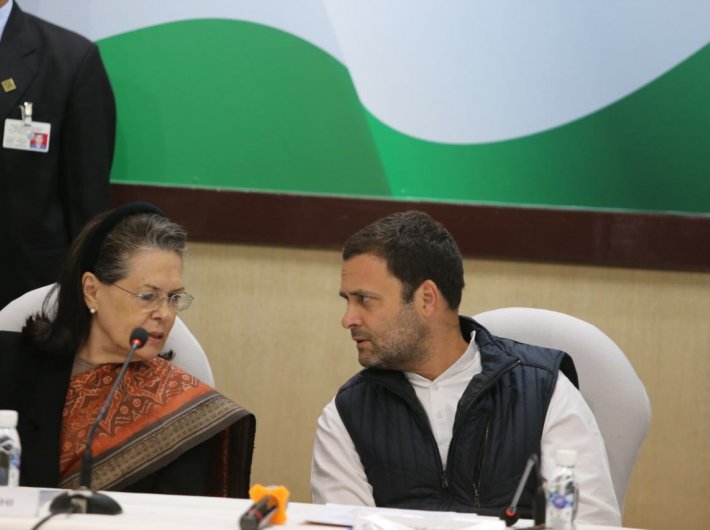A vibrant democracy needs a strong opposition presenting a credible alternative. The Udaipur meet should facilitate collective wisdom of experienced party people to discover a possible alternate construct with right earnest
The Congress is scheduled to hold a Chintan Shivir (meaning, ‘introspection camp’) from May 13th to 15th in Udaipur and it has identified six specific areas for introspection. These are 1. Political 2. Social Justice and Empowerment 3. Economy 4. Organization 5. Farmers and Agriculture and 6. Youth and Empowerment. Around eight to 10 leaders have been entrusted each of these six areas to prepare a paper and lead the discussion pertaining to the referred topics.
This is fourth of a series of Chintan Shivirs to deliberate on various issues around politics and organization. The first three were held in Panchgani (1998), Shimla (2003) and Jaipur (2013). After the latest Chintan Shivir, the Congress is expected to have an Udaipur plan that will spell out action plan to strengthen the party.
The Congress has been on steady decline since 2014, having lost two successive Lok Sabha polls, and reduced to just 29 seats in Rajya Sabha, following a string of assembly election losses. While many analysts have almost written off the party, well, it is still a force to reckon with as analysed below.
In the last parliamentary elections 2019, the Congress polled 11.95 crore votes, as against the BJP polling 22.91 crore votes. In other words, for every 2 voters in India voting for BJP, there was 1 voter for Congress. It is a different thing, thanks to the first-past -the-post electoral system (FPTP), the BJP won whopping 303 seats against 52 of the Congress. The Congress had won the 2004 and 2009 elections. In 2014 it lost to the BJP. The popular votes polled by the Congress in these three parliamentary elections have been, 10.34 crore, 11.91 crore and 10.69 crore, respectively. So, statistically, the Congress votes have been stagnant in the range of 10-12 crores in the last 15 years, while the BJP has nearly tripled its voters from around 8 crore to nearly 23 crore in 2019. While reading the number of votes polled, a word of caution: both the population and voter turnout are increasing in these elections held every five years, and this limitation has to be kept in mind while reading absolute numbers.
The share of the non-Congress-non-BJP parties in popular votes in parliamentary elections have come down from 51% in 2004 to 42% in 2019. However, It may be noted that in terms of vote share, this block had 42% of popular votes in 2019, greater than even the BJP’s vote share of 37% and the Congress’s 19%.
The three-day Chintan Shivir is the last opportunity for the Congress to put its act together before the 2024 elections to put up a fighting chance. For this it needs to address these six core issues as below, which may be intertwined with six areas of discussion mentioned in earlier paragraph.
1. Vision and Mission: The Congress must rediscover its political moorings. It needs to have a clear roadmap, how it can meet the expectations of an aspirational India. Certain segments like youth, women, marginalised, unemployed, tribals, farmers need to be kept in focus while chalking out detailed action plan.
2. Strengthen Grassroots: The strength of a party originates from grassroots and the last man standing in the farthest corner is the one who will influence the voter at the ballot box at the booth. It must reactivate the dormant party apparatus and scale up the level of activities substantially.
3. Leadership: This is one area which needs to be dealt with surgical precision. What ails the Congress is very much known to Congressmen, as one who wears the shoes knows where it pinches. The problem is whether they can stand up, to bell the cat. Election, not selection, should be the one common minimum requirement at all levels of office bearers.
4. Communications and Marketing: Once the key messaging is in place, how to communicate effectively across all delivery modes, including person to person interactions, needs to be focussed on and followed up with vigour.
5. Internal Democracy: A party can survive and thrive if there is free flow of information across hierarchy. Easy access and constructive criticism are healthy for boosting morale of party workers and leaders.
6. Engagement with Other Stakeholders: As seen above, non-Congress-non-BJP parties command 42% of popular votes. This is a huge block. Any election strategy needs to factor in this reality, and it is in the interest of Congress to build alliances with likeminded parties, particularly in states where its organisation is weak and cannot be battle-ready by 2024.
But the problem is, other parties buoyed by their successes in recent assembly elections have started thinking national. Their rising aspirations and the corresponding decline of the Congress in state elections have made the task of having an alliance much tougher and challenging than what it was a decade ago.
The country is now facing headwinds due to growing inflation, a pandemic-devastated economy which will take more than a decade to recoup output losses, rising unemployment and a languishing human development index. A vibrant democracy needs a strong opposition presenting a credible alternative. The Chintan Shivir should facilitate collective wisdom of experienced Congressmen to discover a possible alternate construct with right earnest.
In the destiny of an individual or an organization, there is a moment, when it wakes up to realise its fullest potential. Will May 15th Udaipur herald that moment for Congress, and bring back its mojo?
Mishra is a columnist. He was a topper in Political Science from Sambalpur University.
